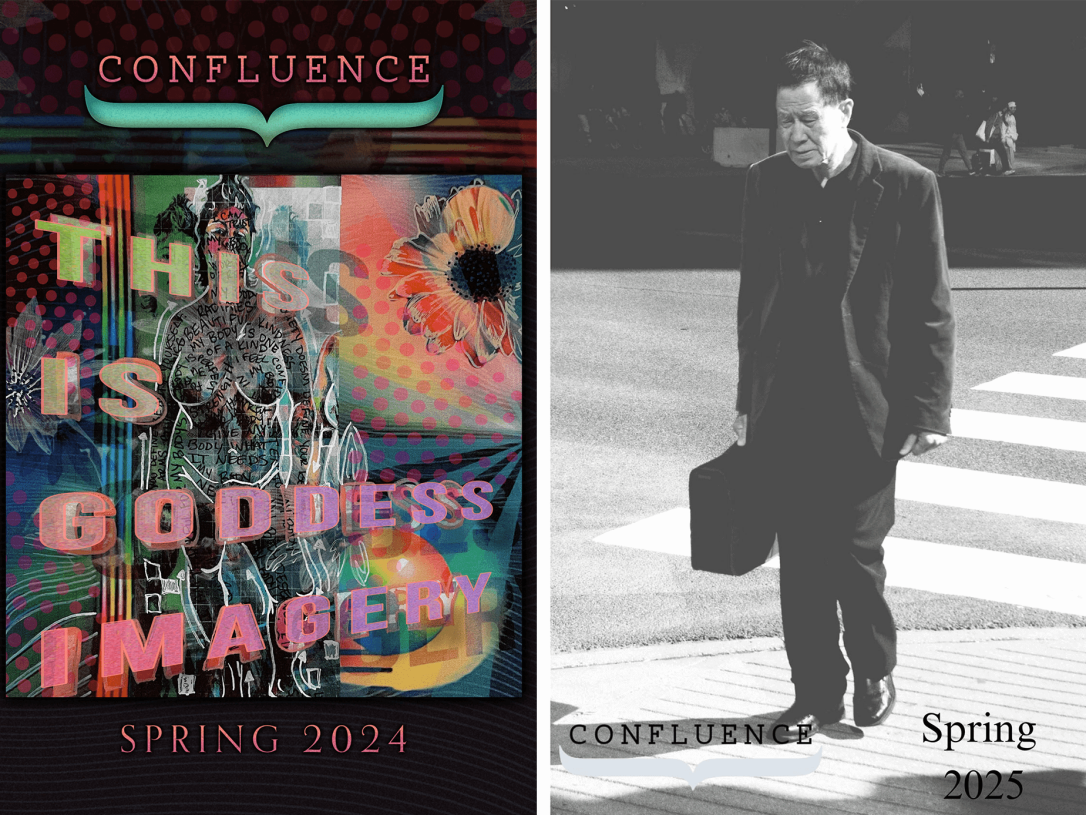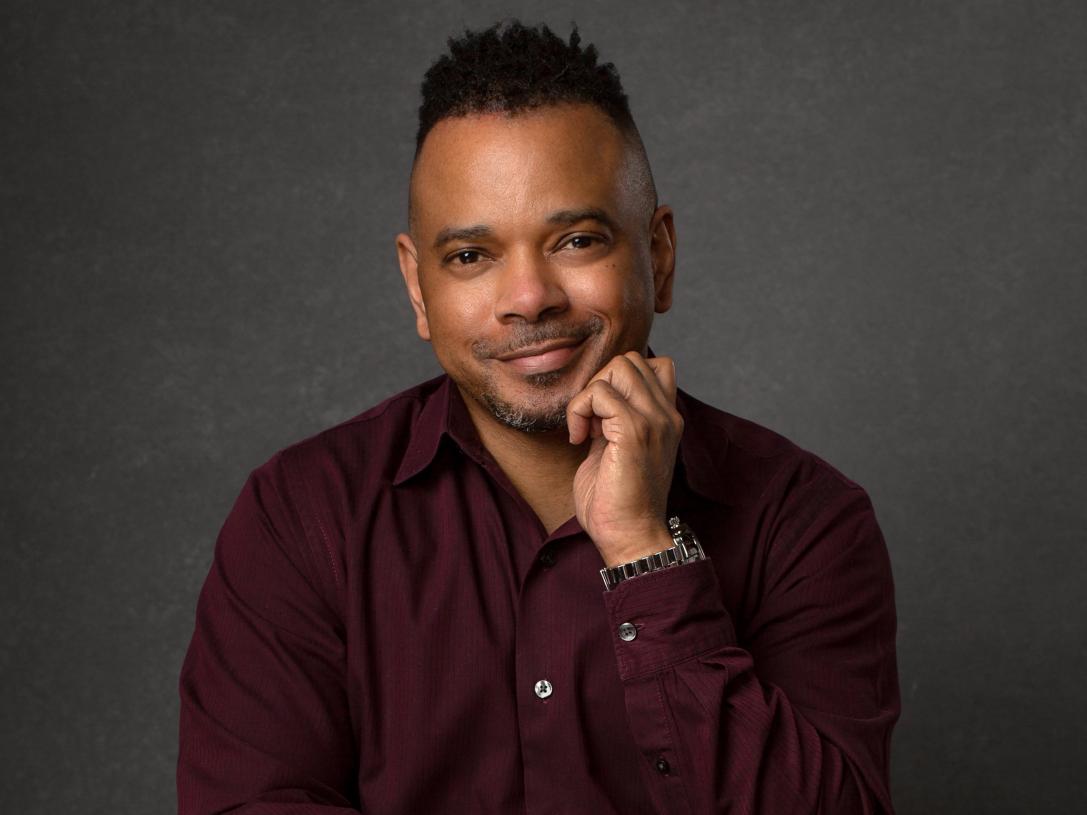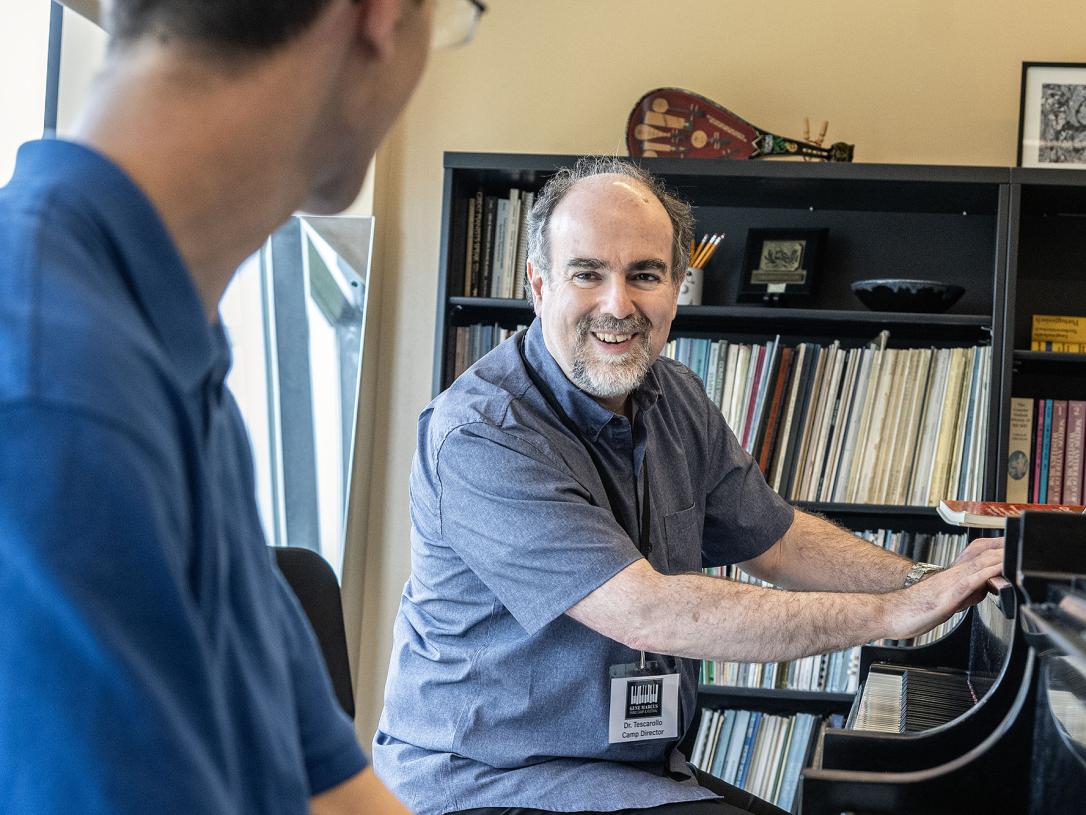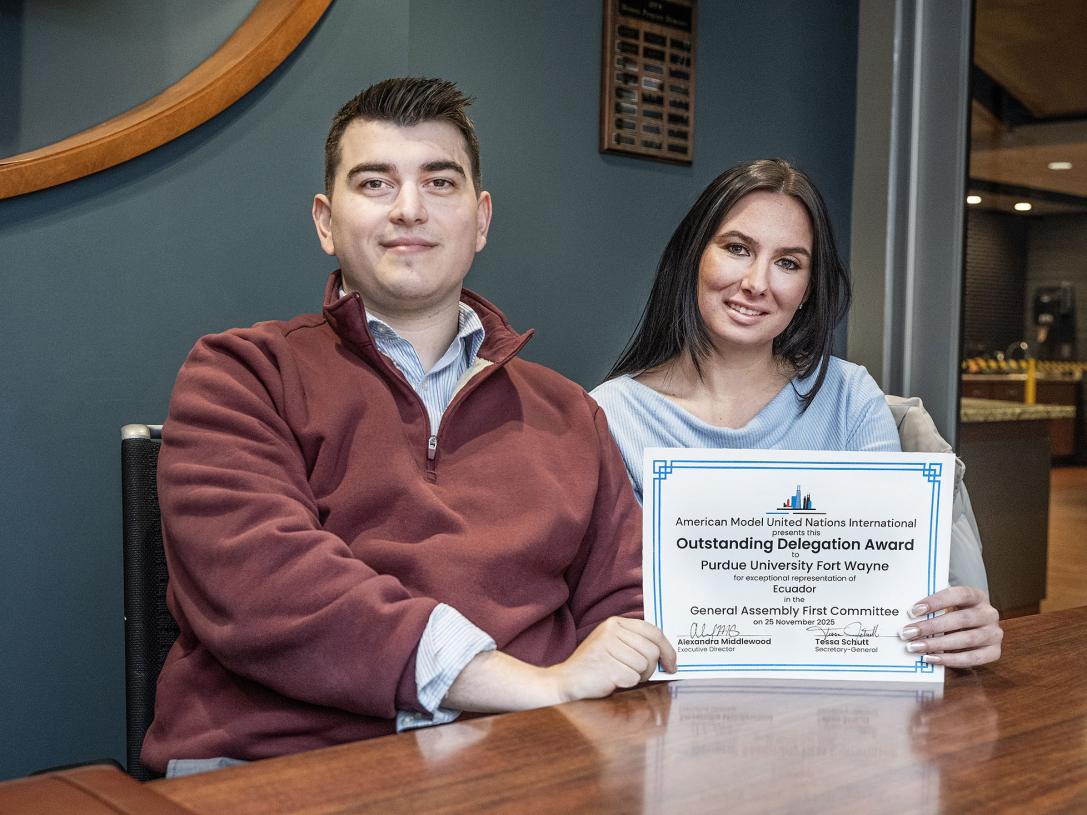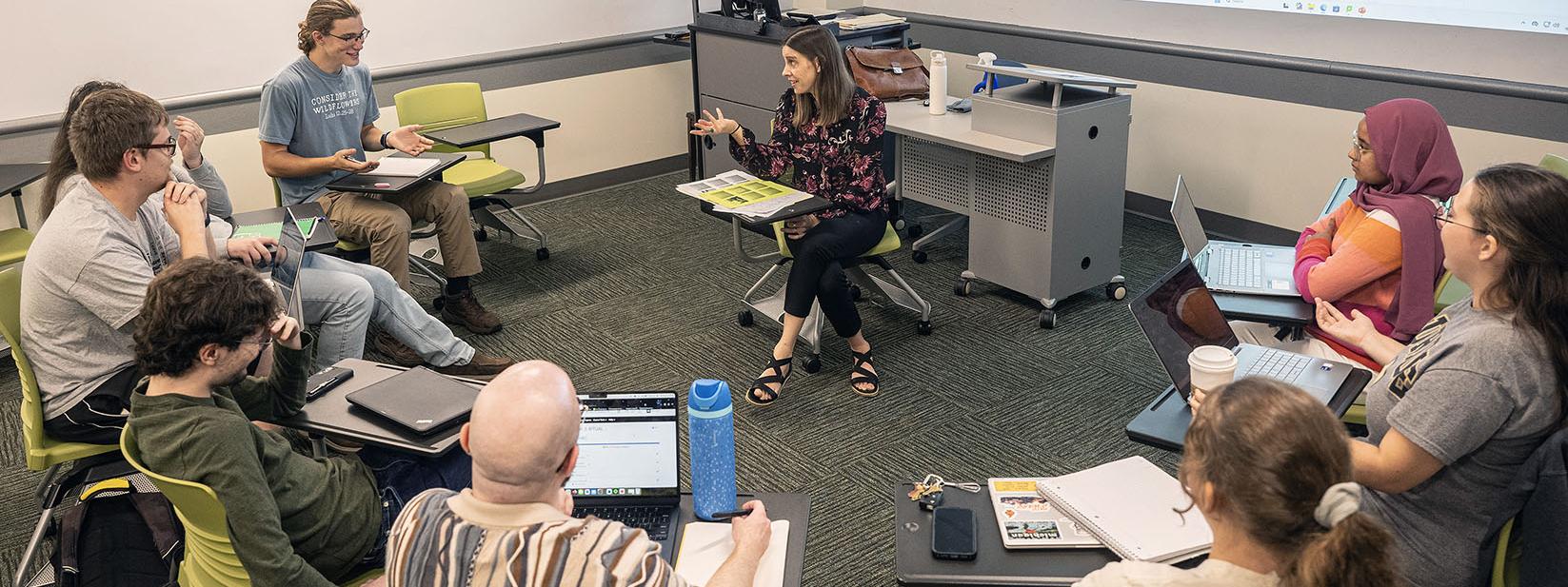
Students challenged to explore the culture of different religions
By Blake Sebring
November 19, 2025
After writing her name and course title on the whiteboard, Noor O’Neill Borbieva, professor of anthropology, turns toward the 10 students who are gathered and says, “This is one of my favorite classes.”
Anthropology of Religion (ANTH 45500) may be one of her favorites because it is so challenging. Anthropology is the study of what makes us human, and little causes better discussions among humans than religion. The Purdue University Fort Wayne catalog describes the course as a critical evaluation of current approaches to the analysis of religious myth, ritual, and symbolism.
The discussions can lead to anywhere, usually with O’Neill nudging her students in different directions. The course is not about individual beliefs, but the culture of different religions. Based on the assigned readings, those discussions can get deeper by the minute as she pushes students to understand the different structures of different aspects of religion.
“This course will introduce you to major scholarly perspectives,” O’Neill writes in the syllabus. “We will read and discuss classics from the anthropology of religion literature, as well as new and exciting works. You will learn about unfamiliar societies and religious traditions.”
And the students are hungry to dig in to the similarities that come from within most religions. Those topics can include mythology, symbols, ritual, altered states of consciousness, magic and divination, gods and spirits, ideology, and even economics.
Four students are majors, a couple are building a minor, and the rest were intrigued by the topic as an elective. They come from a variety of individual faiths but are willing to explore, as O’Neill points out, the things religions have in common.
“My goal is to explore how different religions interact with each other, as well as how their traditions kind of marry each other—and whether that becomes an underlying, inherent, subconscious desire in people,” said sophomore Courlyn Sales, who said she’s a Christian.
Sales said she’s particularly interested in the sometimes background roles of women in religion.
As she has started to explore her faith more, Sales said, there are logical questions that don’t always lead to logical answers. She believes anthropology can provide some background information to provide a starting place for those answers.
Rashida Lan, a senior, wears Muslim clothing and can’t wait to find out how Christians in the class may react during her participation in the discussions.
“It might make a few classmates apprehensive to ask me my opinion or perspectives on matters, especially since Islam has such a controversial reputation in the West,” Lan said. “What I think most people miss is that it is very similar to most other religions. Muslims are not a monolith; we are diverse with various values and perspectives.”
On the first day of the semester, sophomore Brady Rice wore a T-shirt with three crosses, saying he grew up in the church as the son of a Baptist youth pastor. He said anthropology might be one of the few things outside of the Bible he can picture himself consistently studying.
“I’ve loved studying people for the longest time,” Rice said. “This is something I am very curious about. I can’t wait to see what I learn.”
What’s obvious from an early dialogue is that the students’ curiosity can lead to fascinating discussions if they are open and honest, acknowledging their preconceived ideas. By learning from each other, they can learn about themselves.
“I’ve always been a spiritual person and someone who values their faith in the sense that I try to have a personal relationship with God,” Lan said, “but I’ve never been a fan of religious hierarchy or patriarchy, or exploitation of scripture, things I’ve noticed in both my own religious community and others.”
There are limitless opportunities for personal and academic exploration, and O’Neill said she’s not trying to change anyone’s faith, but encourage them to think in new ways about them. Having taught the course since her first semester at PFW in 2009, she’s found that even as students in our society have changed, they still have the same questions.
“Some questions are timeless,” O’Neill said, “and the spaces in which we can discuss them productively and safely, coming from different places and representing different perspectives, have become few and far between.”
As Sales said, she’s not going to change her faith, “But this class might help with understanding so it can grow.”
